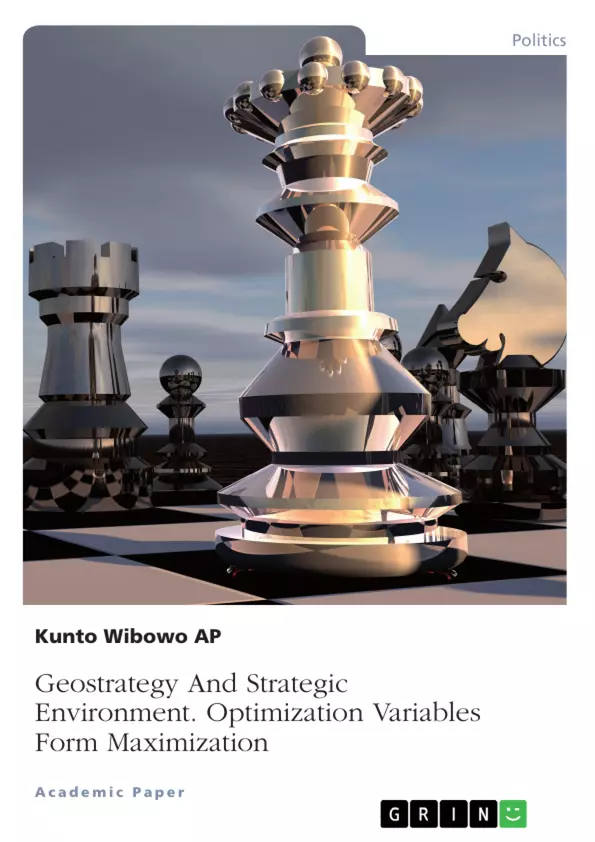The level of productivity produces maximum benefits to provide maximum usefulness to prove the maximum is not something that produces maximum performance, but optimal is what will produce maximum performance, so the optimal is the desired maximum variable performance. Thus, this becomes increasingly important in determining the expected maximum level of achievement, bearing in mind that there is everything in the maximum performance that causes it to be not optimal, so that everything is optimal which can produce maximum results. Therefore, everything in the process of achieving maximum is not maximum, but optimal.
Related to this, it is not for the purpose of criticizing but rather a logical approach, where the formulation of the perception of national power according to Ray Cline, Power equation: P = (C + E + M) x (S + W), where: C = critical mass (population and territory); E = economic capacity or strength; M = military capacity or strength (including: the strategic balance plus combat cap-ties and bonuses for effort); S = national strategy coefficient; W = national will (including: level of national integration, the strength of leadership, and the relevance of strategy to the national interest), is an effort to achieve a maximum P value, so that each factor comprehensively to achieve maximum P is maximal and not optimal. Whereas P which is stated to be maximum, actually it is not a maximum result, because the equation does not show a unity of process, but rather an equation in the calculation of addition and multiplication operations, which can be understood as a totality.
Inhaltsverzeichnis (Table of Contents)
- Abstract
- Keywords
- Introduction
- Methods
- Desk study method
- Result and Discussion
- Uses, Losses and Main Points
- Geopolitics, Geostrategy and Strategic Environments
- Conclusions
- Recommendations
- References
Zielsetzung und Themenschwerpunkte (Objectives and Key Themes)
This paper explores the concept of optimization variables in relation to achieving maximum results, particularly within the context of national power and strategic environments. It critiques existing models, like Cline's model, for focusing on maximizing individual factors rather than achieving overall optimal outcomes.
- Optimization of variables for maximum performance
- Critique of existing models of national power
- The relationship between profit, loss, and return
- Geopolitics and geostrategy in the context of national power
- The impact of information-based technology on strategic environments
Zusammenfassung der Kapitel (Chapter Summaries)
- Introduction: The introduction establishes the context for the paper by highlighting the importance of optimization in achieving maximum results in a dynamic strategic environment. It critiques existing models, like Cline's model, for focusing on maximizing individual factors rather than achieving overall optimal outcomes.
- Methods: This chapter outlines the research methodology used in the paper. It describes the desk study method, which involves examining, analyzing, and interpreting secondary data with a phenomenological approach.
- Result and Discussion: This chapter presents the findings and analysis of the paper. It discusses the concept of optimization variables in the context of national power and strategic environments, emphasizing the importance of achieving an optimal balance between various factors rather than simply maximizing individual components. It also analyzes the impact of information-based technology on the strategic landscape and highlights the need for a more holistic approach to understanding national power.
Schlüsselwörter (Keywords)
The key keywords and focus topics of the paper include: profit, loss and return principal; geopolitics and geostrategy; strategic environment; optimization variables; national power; Cline's model; information-based technology.
- Quote paper
- Kunto Wibowo AP (Author), 2020, Geostrategy And Strategic Environment. Optimization Variables Form Maximization, Munich, GRIN Verlag, https://www.grin.com/document/903932



